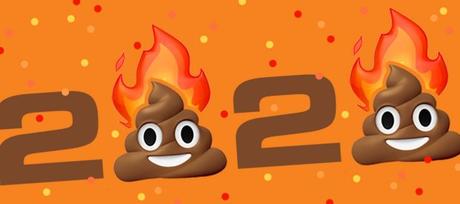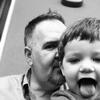
Around this time four years ago, there was a barrage of articles, posts and memes declaring 2016 the " Worst Year Ever." Between Trump getting elected, Brexit, Orlando, Zika and an inordinate amount of celebrity deaths, we thought it couldn't get any worse than that.
But then 2020 came along.
Worst Year Ever or Year That Never Was?
There's an inclination to look at 2020 a couple of different ways. First is to declare the year a complete dumpster fire and celebrate that it's finally coming to an end. The second is to sail into 2021 denying that the previous year ever happened, numb to all the trials and stresses it brought. Out of sight, out of mind.
If you're like me, you've been veering between these extreme (yet totally understandable) perspectives on a daily basis. I'd like to suggest a third alternative: take some time to ponder 2020 and find the lessons you've learned from it.
I recently took part in a conversation with Sonya Renee Taylor (hosted by Responsibility.org), where the topic of 2020 came up. Sonya is an amazing and vibrant speaker, author, advocate and poet, whose primary goal is to challenge people to love themselves honestly and unapologetically.
How does Sonya's goal of honest self-love fit into how we view such a challenging year? And how do we transfer that to help our kids process it?
Talking To Your Kids About 2020
As parents we shouldn't whitewash 2020's events and how they affected our families. And really, how can we avoid what happened anyway? Between the isolation of quarantine and distance learning, the fear of COVID and the illness or loss so many experienced, a president contradicting every expert, and the 24/7 news coverage of it all, we've had some pretty damn honest conversations with our kids. Conversations we never imagined we'd have to have.
And to balance the negativity, it's important to not dismiss the year entirely as a steaming pile of useless crap. To paraphrase Sonya, "Life is going to hand you some shit. You can't control that, but you can control what you do with the shit." Sonya wrapped her analogy by suggesting using it as fertilizer to plant something beautiful or nutritious. There are lessons to be learned in the midst of hardship, and growth to be gained from it.
As we're able to reflect on how we've grown and what we've learned, we can then share that with our families. If nothing else, this year has afforded our kids a more honest view of us as parents than ever before. It's not only tested our relationships with our kids, but with our partners as well.
So how do we go about pondering a year full of illness and isolation, not to mention racial and political unrest? Sonya shared one of her coping strategies. It's both a mantra and a question: Person or event, lesson and lingering.
Whether it's you, your family, the nation or the world, look at that person or thing. Ask yourself What did I learn? What was I supposed to learn? What is still lingering - what am I still learning?
Sonya shares, "We're inclined to put a nice, tidy bow on 2020. One of the biggest mistakes we can make as a human collective, is to not look at 'What did I learn and what am I learning?' Because if we didn't learn anything out of this, we will be back here. If we didn't get the lesson, we shall revisit 2020 - in 2021... in 2022. What is still asking to be resolved?"
Getting Radical With Ourselves
Another set of truths Sonya champions: radical honesty, radical empathy, radical vulnerability.
"We need these to talk about what 2020 has been," she explains. "We've needed those things to make it thru the year, to show up to the level of challenge 2020 has been. It does a disservice to our resilience to act like the year wasn't as hard as it was. To own that it was as hard as it was is to own that we survived. And therein lies the celebration. We also need to honor that not everyone did make it through. If we're not honest, then we can't honor."
Before 2020 wraps up, take some time to honor the people and things you've lost in 2020, and to share that honoring with your kids. Ask them what they miss and give them the space and time to be sad. And then take a moment to ask yourself and your kids what they've learned this past year - about themselves, about your family, about the world. Find ways to praise and encourage the hurdles they've overcome, and then do the same for yourself.
I don't know that I'm able to go so far as to be thankful for 2020. However, I am thankful my family and I are still here, still growing, still learning life's lessons.
Learn more about Sonya Renee Taylor and her work here, here, here & here. You'll be glad you did!
Responsibility.org is all about responsible alcohol choices. Please check out their site for valuable info for parents and non-parents alike. An important fact: parents are the leading influence on a child's decision to drink (or not drink). When conversations about alcohol between parents and kids increase, underage drinking decreases.
As a brand ambassador for Responsibility.org, I am being compensated to write this post. However, all opinions are my own.
comments

